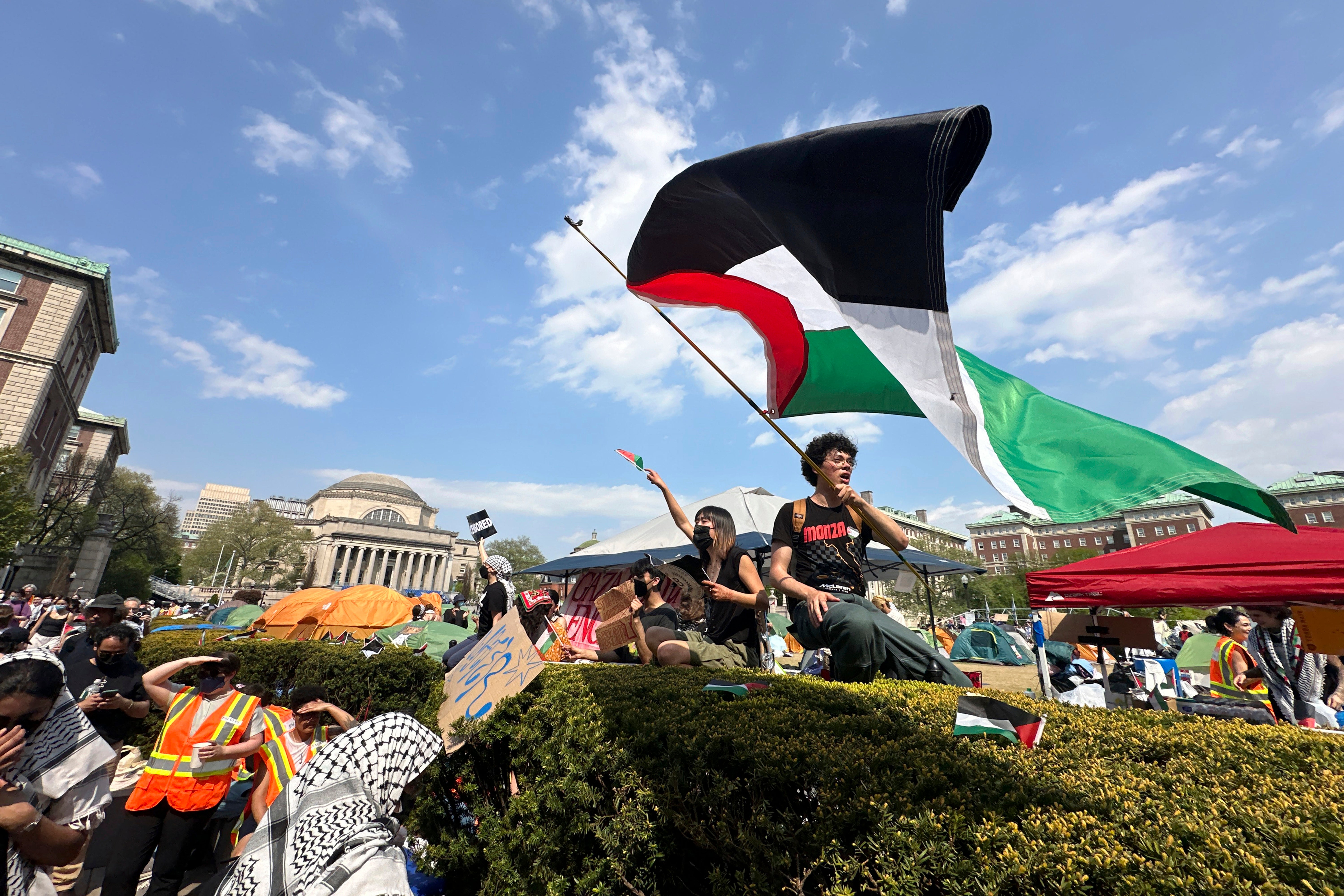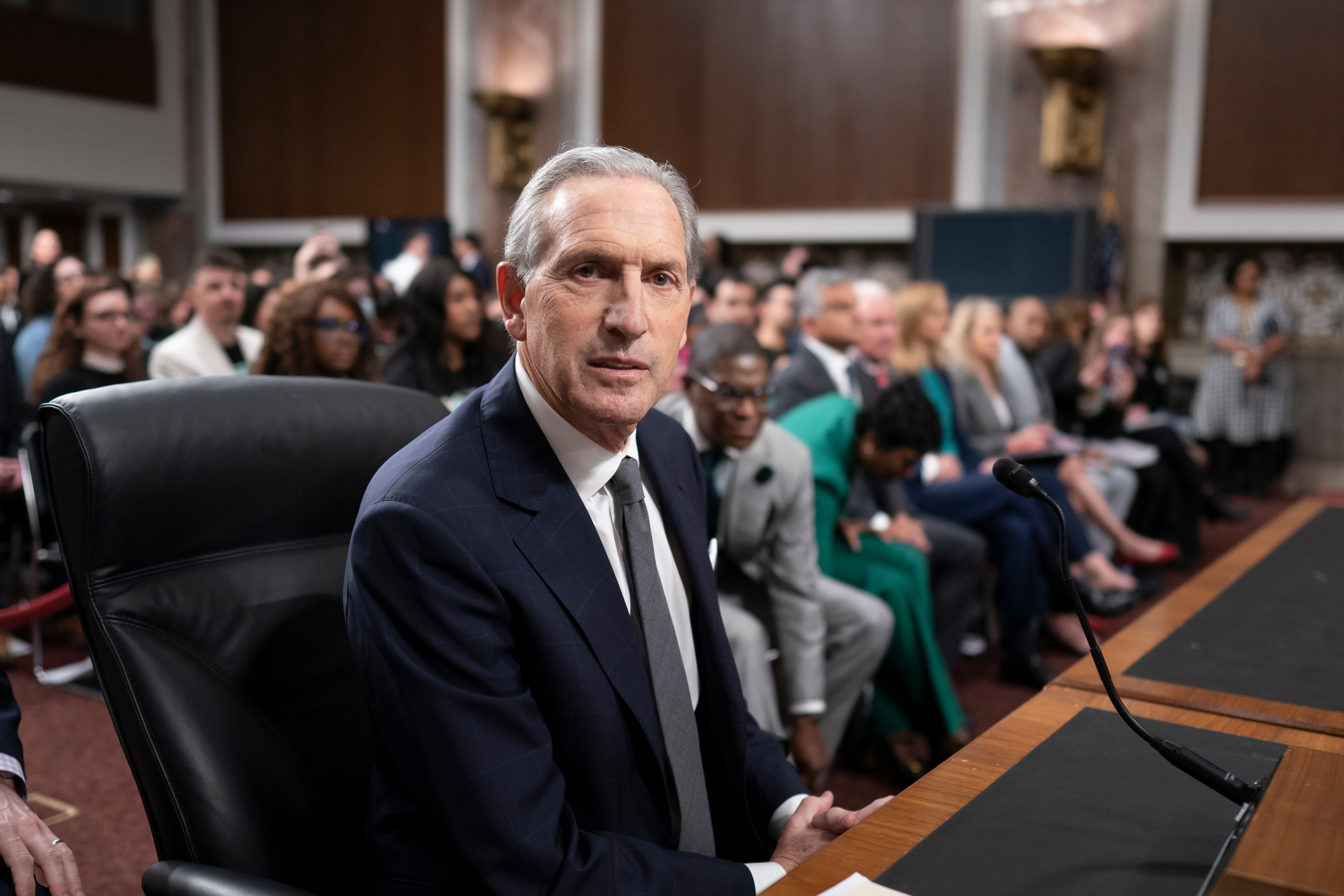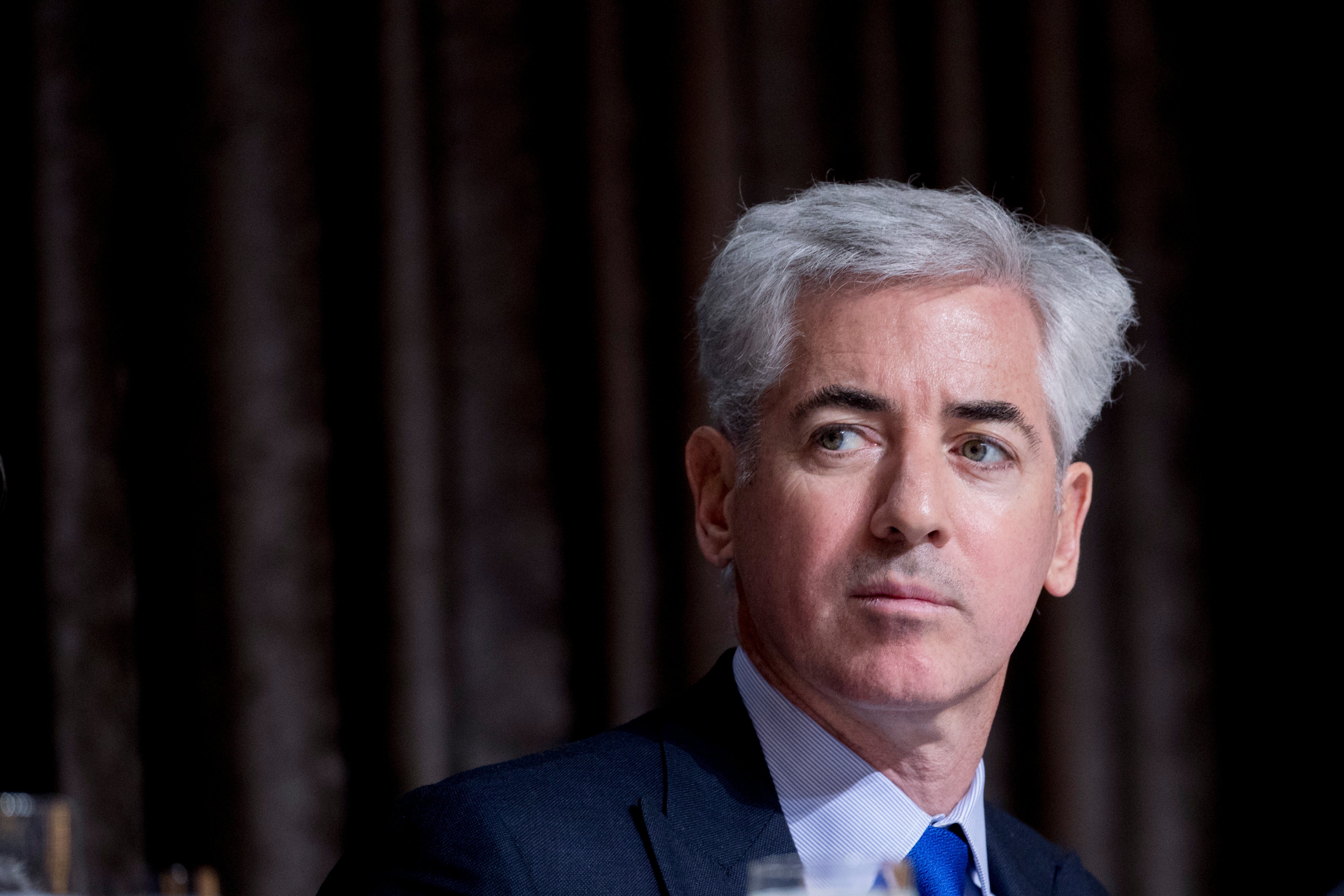
A high-profile group of financiers, billionaires and executives joined a private WhatsApp group to sway public opinion on the Israel-Hamas war, culminating in some members participating in a Zoom call with New York mayor Eric Adams urging him to use police to deal with protests at Columbia.
A section of the powerful pro-Israel group held a video call with Mr Adams on 26 April, in which it was discussed how to get New York City Police Department officers onto the Ivy League campus in Manhattan where one of the most high-profile pro-Gaza encampments was located, according to The Washington Post.
Members of the group included Kind snack company founder Daniel Lubetzky, hedge fund executive Daniel Loeb, billionaire Len Blavatnik, and real estate investor Joseph Sitt, according to a log of chat messages referencing the meeting obtained by the newspaper.
During the meeting, which took place a week after the NYPD’s first major operation at Columbia, where scores of students were arrested, participants allegedly discussed how they could lobby Columbia leadership into requesting the mayor send the NYPD back on campus for another round of arrests.
A few days later, at the request of the university, NYPD riot police were indeed back on campus in response to the takeover of a campus building, and hundreds were arrested.

During the Zoom, participants also allegedly spoke about donating to the mayor and hiring private investigators who could assist the NYPD in managing protesters, an offer that a member of the chat group suggests Mayor Adams accepted.
The alleged April meeting was part of larger efforts by members of the WhatsApp group, which reportedly included figures from the very upper echelons of business including former Starbucks CEO Howard Schultz, Dell founder and CEO Michael Dell, billionaire hedge fund manager Bill Ackman, and investor Joshua Kushner, the brother of Jared Kushner, Donald Trump’s son-in-law and a former Trump administration official.
When asked byThe Independent about the alleged meeting and the discussions therein, the mayor’s office responded with the following statement, attributed to deputy mayor Fabien Levy:
“Let’s be very clear: Both times the NYPD entered Columbia University’s campus — on April 18th and April 30th — were in response to specific written requests from Columbia University to do so. Prior to these operations, Mayor Adams consistently stated that Columbia is a private institution on private property and that assistance would be provided only upon request. Any suggestion that other considerations were involved in the decision-making process is completely false, and the insinuation that Jewish donors secretly plotted to influence government operations is an all too familiar antisemitic trope that the Washington Post should be ashamed to ask about, let alone normalize in print.”
A Post spokesperson declined to comment.
The Independent has contacted representatives of Messrs Lubetzky, Loeb, Blavatnik, and Sitt for comment.
Spokespeople for Mr Lubetzky and Mr Sitt told the Post they did not donate to the mayor.
A spokesperson for Mr Blavatnik told the paper he attended the Zoom, during which participants voiced a variety of opinions and ideas, some of which didn’t agree with. The spokesperson said, Mr Blavatnik, a Columbia alum, attended the session to see how the mayor “was thinking about the Columbia protests,” and gave $2,100 to the mayor’s reelection campaign in April.
The NYPD told The Post it has not and is not using private investigators to manage the protests.

The April meeting wasn’t the only time the groupchat rubbed shoulders with government officials.
Following the outbreak of the 7 October conflict, members reportedly sat for briefings with former Israeli prime minister Naftali Benneft; Israeli ambassador to the US Michael Herzog, and Israeli war cabinet member Benny Gantz.
“Most appreciative for the behind the scenes briefing by Naftali Bennett,” Mr Schultz wrote the group chat in October, according to the chat records. “Quite extraordinary!”
A spokesperson for Mr Schultz told the Post the executive attended the briefing with Bennett, and the Israeli Embassy confirmed to the paper the briefing with Mr Herzog took place, calling it “one of dozens” of such sessions with members of the public, a reflection of how “communities here in the US understandably wanted to learn more about what was happening on the ground in Israel.”
A Schultz representative told The Independent the entrepreneur “is pained by the loss of innocent lives in Gaza and Israel,” but left the chat group in October, did not attend the April Zoom meeting, and “did not participate in, or contribute financially to, any of the group’s work.”
A spokesperson for Mr Kushner, when asked if he was a member of the group chat or attended the alleged Zoom meeting with the mayor, told The Independent, “No, Josh has not participated in this.”
The Independent has contacted Mr

for comment. A representative for the hedge fund billionaire confirmed his membership in the group to the Post.
Mr Ackman has been one of the most vocal business leaders about the conflict and its wider cultural ramifications, often criticising what he perceives as an insufficient response from university officials to allegations of antisemitism on campus.
Last year, the executive publically floated the idea of releasing a list of students at Harvard who signed onto a letter arguing Israel’s policies towards Palestine were “responsible” for the outbreak of war so companies could avoid hiring them.
The WhatsApp group was reportedly founded by a staffer of real estate magnate Barry Sternlicht after the 7 October Hamas surprise attack on Israel.
Reportedly titled “Israel Current Events,” the chat was established to “change the narrative” around the conflict to be more favourable to Israel by highlighting “the atrocities committed by Hamas … to all Americans,” according to the Post story.
The Independent has contacted Mr Sternlicht for comment.
The chat reportedly shut down earlier this month after seven months.